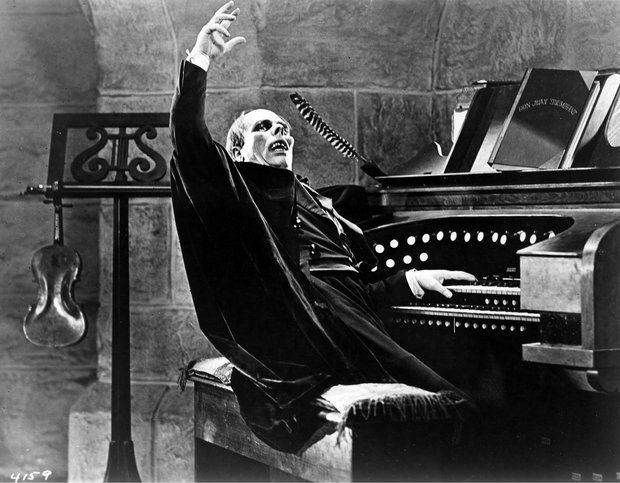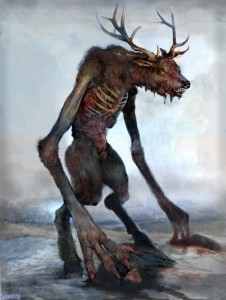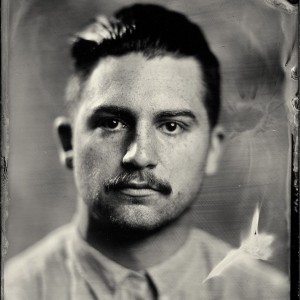
How You Know When To Be Scared: An Exploration Into the Music of Horror Films
The low rumble of a timpani drum or the crescendo of strings, climbing up the chromatic scale. There’s that melody again! Last time you heard that, it did not end well! It must be a foreshadowing of something terrible. What danger could be lingering around the corner? Is it an axe murderer? Is it the undead?! IS IT THE GHOST OF… Nope! Just a cat! But, that cat scared the hell out of you, didn’t it?! This is the power of a good horror soundtrack. It allows the director to reach right into your chest and manipulate your heartbeat however they please. That is power on a terrifying scale.
To help us better understand this power, we reached out to our friend, film maker, programmer for Film Bar, and horror film enthusiast Chris Heck to ask a few questions about his favorite horror movies, soundtracks and thoughts on this invisible character that has elevated so many great horror films, with only the use of sound and emotional manipulation.
SW: What is the first memory you have of being scared while watching a movie?
CH: Although I don’t remember actually watching the movie, I do recall having nightmares about Jason hiding under the couch around age 5 so I must have at least caught a glimpse of a Friday The 13th. My mom has always really been into horror so I got an unhealthy dose of it from a young age.
SW: Why do you think you gravitated towards these films considering that they gave you nightmares?
CH: I think you come to horror for the rush. Fear isn’t something most people encounter on a daily basis so it’s thrilling to have that experience. You end up staying for the community. We all feel like outsiders in one way or another and ultimately that’s what horror is about. In that sense I think horror can be a really positive thing. It helps a lot of people in a strange way.
“Horror addresses the fears of the individual and society…It helps us make sense of and confront what’s going on in the world”
SW: What makes a horror film great?
CH: It’s all so relative. So much depends on the person, the generation, what’s going on in the world. For me it’s a 50/50 mix of the real world and the supernatural. The reality should be just as threatening as the fantastical. Rod Serling was the master of this, it’s the whole reason he created The Twilight Zone. He knew that the parable was the ultimate form of storytelling. Horror addresses the fears of the individual and society. That’s why you can look at eras of film and pinpoint what was going on culturally. German Expressionism came as a result of WWI, Torture Porn as a result of the war on terror. It helps us make sense of and confront what’s going on in the world.
SW: What is one of your favorite horror film soundtracks?
“Anytime a film tries something you didn’t expect, it helps propel the genre into a new direction”
CH: Ever since I was a kid I had a strong fear of snowy winter nights. There’s something really eerily beautiful about it. The perfect setting for a ghostly encounter.
SW: Speaking of winter… Christmas music has been forever changed with the advent of two albums, called Jingle Cats and Jingle Dogs. As you may guess or already know, this is an album of dogs and cats singing popular Christmas songs. If you were to make this sort of album for popular horror film soundtracks, which animal would you choose?
 CH: Oh, man. I really hope it never comes to that. If I had to choose maybe something like a bobcat. Those things are scary. Or a Wendigo, if you can record one.
CH: Oh, man. I really hope it never comes to that. If I had to choose maybe something like a bobcat. Those things are scary. Or a Wendigo, if you can record one.
SW: I had to look up what a Wendingo is. Yeah, I don’t know what kind of sound that thing makes, but I imagine it’s not pleasant.
SW: What do you have going on at Film Bar for the week leading up to Halloween?
CH: The big event will be Stephen King’s IT on Friday night at midnight. I’ll be hosting with 90’s trivia and giveaways and period appropriate commercials laced throughout. Halloween night will be awesome with Guy Maddin’s new film The Forbidden Room, From Dusk Till Dawn, The Babadook, and closing the night out with a DJ set by Djentrification spinning strange but dance-able vinyl.
[Chris Heck has hooked us up with free passes to the movie of your choice, at film bar. Just comment bellow with your favorite Horror Film Score/Soundtrack and you’ll be entered to win!]
 Chris Heck is a filmmaker and storyteller of the odd and unusual with Phoenix based collective Theater13. He often hosts screenings at FilmBar, curates the Short Shorts With Short Leash film festival, held at Stinkweeds Records every spring, and teaches classes at Scottsdale Community College. His work can be found at theater13.com or follow him on Instagram @chrisheck13
Chris Heck is a filmmaker and storyteller of the odd and unusual with Phoenix based collective Theater13. He often hosts screenings at FilmBar, curates the Short Shorts With Short Leash film festival, held at Stinkweeds Records every spring, and teaches classes at Scottsdale Community College. His work can be found at theater13.com or follow him on Instagram @chrisheck13
Happy Halloween!